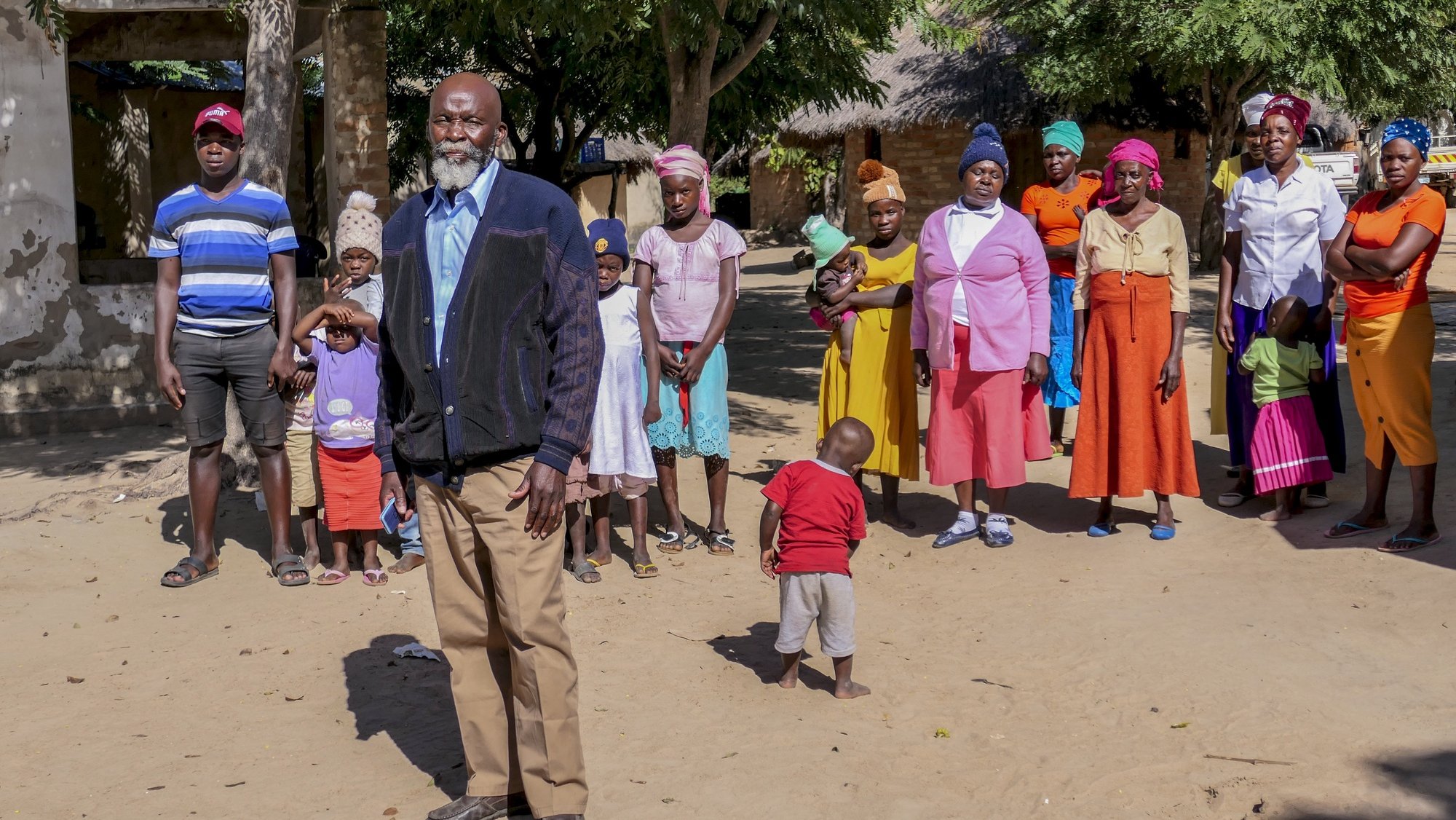Pedro Faricai, 71, says he continues to spread the romance with 13 wives with whom he shares a handful of precarious homes in Mpandeia, a town stranded on the mountain range that separates Mozambique and Zimbabwe.
He married his first wife late, in 1978, at the age of 27. The following year, he shared a roof and a bed with a second wife, before leaving with them for Zimbabwe, fleeing the 16-year civil war in his country.
He returned in 1987 with five women and the other three he says he “hooked” in a camp for displaced people in Zimbabwe, Mozambican refugees to whom he promised “much love” on their return to their homeland.
“I had 17 wives. Two died, I divorced two others and right now I have 13 women here”, he says with a proud and serene tone, surrounded by nine of them, while another four work in the fields.
In Mozambique, polygamy is not legalized, but it is not a crime. Depending on the context, it is even a tradition with some acceptance, a tradition that insists on condemning women to poverty, especially in rural areas, warn organizations that study the issue.
A feminist movement, led by WLSA Mozambique, the Mozambican branch of the NGO Women and Law in Southern Africa Research and Education Trust, has been fiercely fighting polygamy since some parliamentarians admitted including it in a draft Family Law in 2003.
The idea did not move forward, but discussions continue, with various organizations issuing other warnings: with the high prevalence of the HIV virus in southern Africa, polygamy in Mozambique is classified as a “fertile weapon” for the spread of AIDS.
The debates continue, but in Mozambican society there is no consensus. Loyal to the John Marange sect, a group known for banning conventional medicine and promoting polygamy, Pedro Faricai tells Lusa that he continues to “destroy” places of worship, where he won most of his wives, almost all of them. faithful to the cult.
“Now I want to marry others, but I don’t want to anymore, that’s enough,” he says, in a hesitant tone, with an embarrassed smile in the middle of a long beard, a shiny shaved head, a typical and obligatory image for the men of the sect.
Pedro Faricai’s closest competitor in the town of Mpandeia has three wives and eight children. In the region, most men stopped at the second wife.
44 children, 53 grandchildren, at last count
At the moment, with 44 children, some pregnant women and 53 grandchildren, according to the count made in June, Pedro Faricai explains that he entered polygamy -a hereditary practice in the family- because he did not want to grow old “unfortunate and lonely”. ”.
“I sat down with my wife and said ‘I want to add women’, she asked why, I said ‘we’re growing up, so when we get old, what will it look like? The children are going to grow up and get married, so how are we going to live?’ She accepted”.
The first woman even helped him conquer others, the man with a robust body and a determined look, who does not look 71 years old, tells Lusa.
This leaves me very satisfied because when I want, they are always here”, he concludes.
The polygamist also takes advantage of the fame of being one of the best tomato producers in Manica, supplier of the central provinces of the country, to be a source of income, family breadwinner and, thus, gain more women.
The peasant family is structured: the orders of the house always come from him and the occasions in which a decision is delegated to another woman are rare -except in matters of family government, where the organization acquires a certain complexity: such matters must involve the first wife, plus two others chosen on a case-by-case basis and two children, their heirs.
“When night comes, I gather all the wives and say prayers, as usual” and it is on these occasions, he continued, that the plans of the house are drawn, problems are presented and news is announced.
At this meeting, the women are forbidden to present their personal needs, which must be silenced whenever the man visits the house of each of them on the scheduled night.
“I helped him get more wives. In total, I won three wives for my husband”, proudly tells Lusa Mivisse Sheikh, the first of the polygamists.
Pedro’s house is the only one that has TV
Pedro Faricai has his own house, the only one with a television, which is like a center of power.
There he lives and receives the women he chooses to spend the night, the days he decides not to go to their huts, scattered around the large backyard, in the middle of nowhere.
The provinces of Manica and Tete, in the center of Mozambique, as well as the province of Gaza, in the south, continue to be the ones with the most cases of polygamy, a tradition that prevails, rooted in the most remote areas, immune to debate.
Polygamy is one of the recurring themes in the work of Paulina Chiziane, a Mozambican writer who in 2021, at the age of 66, won the Camões Prize, choosing the fight for the emancipation of women as one of the guiding threads of her work.
A reality that takes place together with Pedro Faricai. He claims that if he had been successful on all the occasions in which he “spread love”, the current number of wives would be greater.
“Many fathers refused to give me their daughters in marriage,” he recalls, followed by a characteristic laugh, but this time he tries to hide his wounded pride in situations where he failed to hook another woman.
Source: Observadora
